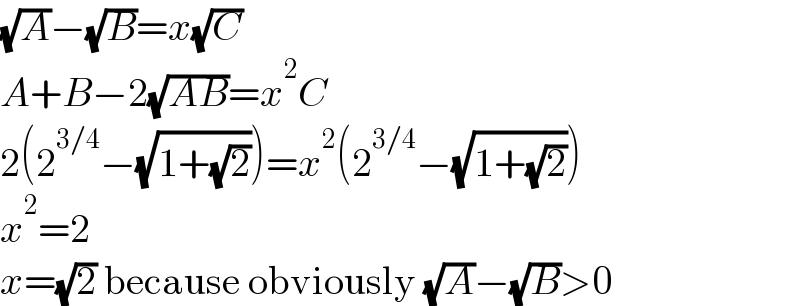
Question and Answers Forum
Question Number 161061 by cortano last updated on 11/Dec/21

Answered by MJS_new last updated on 11/Dec/21

| ||
Question and Answers Forum | ||
Question Number 161061 by cortano last updated on 11/Dec/21 | ||
 | ||
Answered by MJS_new last updated on 11/Dec/21 | ||
 | ||
| ||